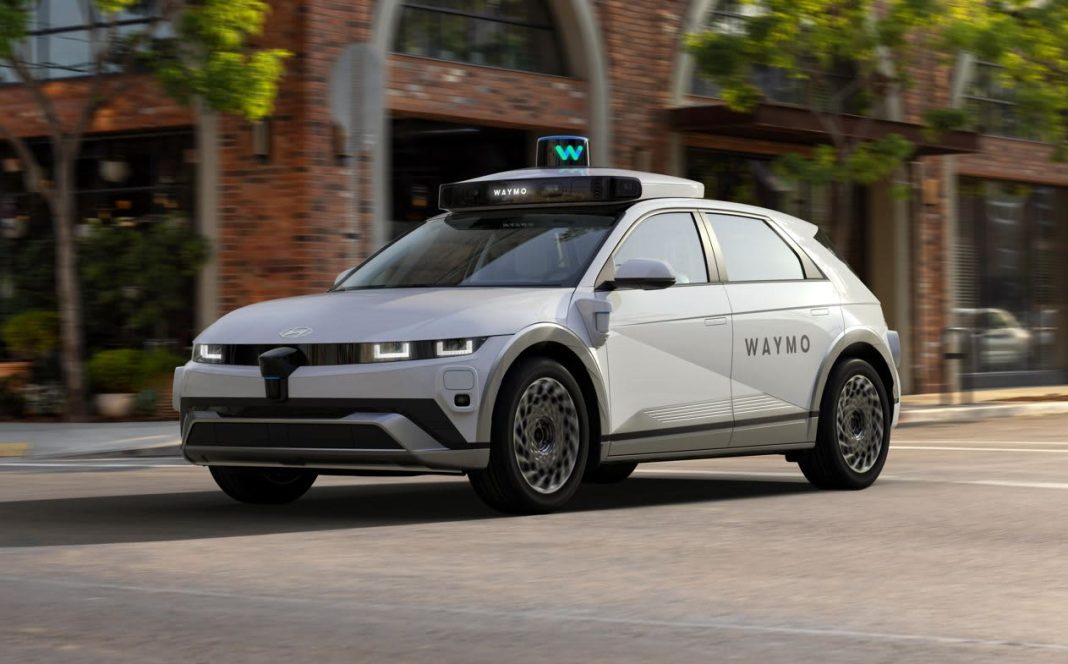In a significant move towards the future of autonomous transportation, Hyundai Motor and Waymo have embarked on a strategic partnership that is set to reshape the landscape of robotaxi services. This collaboration will see Waymo integrating its cutting-edge sixth-generation autonomous technology, known as the Waymo Driver, into Hyundai’s innovative Ioniq 5 electric vehicles. This partnership not only highlights the growing synergy between traditional automotive manufacturers and tech-driven companies but also marks a pivotal step towards the mainstream adoption of self-driving vehicles.
Waymo, which has established itself as a leader in the autonomous vehicle sector, operates the only commercial robotaxi service in the U.S. under the brand Waymo One. Currently, the service boasts an impressive fleet of around 700 vehicles, providing over 100,000 paid rides each week. This partnership with Hyundai is expected to enhance Waymo’s capabilities significantly, as the Ioniq 5s will be equipped with specialized modifications to accommodate the intricate demands of autonomous driving. These vehicles will be manufactured at Hyundai’s upcoming Metaplant America in Georgia, ensuring a steady supply of vehicles tailored for Waymo’s needs.
The timing of this agreement is particularly noteworthy, as it comes shortly after Waymo unveiled its latest advancements in autonomous driving technology. The new generation 6 system promises to improve performance across a broader range of weather conditions while reducing the reliance on expensive sensors and cameras. This leap in technology is crucial, especially as the autonomous vehicle market is projected to reach $556 billion by 2026, according to a report by Fortune Business Insights. Such growth underscores the importance of strategic alliances like the one between Hyundai and Waymo, aimed at accelerating the commercialization of self-driving technology.
Initial testing of the Waymo-enabled Ioniq 5 vehicles is slated to begin by late 2025, with the expectation that these vehicles will soon be available to riders of Waymo One. José Muñoz, Hyundai’s Chief Operating Officer and CEO of Hyundai Motor North America, expressed optimism about the partnership, stating, “The team at our new manufacturing facility is ready to allocate a significant number of vehicles for the Waymo One fleet as it continues to expand.” This statement not only reflects Hyundai’s commitment to the collaboration but also hints at the potential for future expansions in their partnership.
Interestingly, while this initiative marks a new chapter for Hyundai, the Ioniq 5 is not new to the autonomous landscape. The vehicle is already in use by Motional, a joint venture between Hyundai and Aptiv, which has been actively testing its own autonomous driving capabilities. However, Hyundai has assured that the new partnership with Waymo will not interfere with Motional’s operations, suggesting a strategic division of roles that could optimize the resources and technologies of both endeavors.
Financial details of the partnership have not been disclosed, but it has been confirmed that Waymo will purchase and own the vehicles, indicating a robust investment in the future of autonomous transport. This collaboration is not Waymo’s first foray into partnerships with automobile manufacturers, as it has previously worked with brands like Chrysler and Jaguar. However, the integration with Hyundai’s Ioniq 5 represents a unique synergy between a legacy automaker and a tech-forward company, echoing the broader trend of convergence between technology and traditional industries.
As we look ahead, the implications of this partnership extend beyond just the vehicles. It highlights a pivotal shift in how transportation is perceived and delivered. With autonomous vehicles set to play an increasingly significant role in urban mobility, collaborations like that of Hyundai and Waymo are crucial in paving the way for a future where self-driving cars become a commonplace facet of daily life. As such, the efforts made today could very well dictate the norms of tomorrow’s transportation landscape, promising a safer and more efficient way to travel.


